Mend the gap: How can we better connect academic research and industry practice in control systems?
Tuesday August 26 at 13:30, Auditorium 2
Organizers:
- Tariq Samad, Honeywell Automation and Control Solutions, US; tariq.samad@honeywell.com
- Roger Goodall, Loughborough University, GB; r.m.goodall@lboro.ac.uk
Session Motivation, Objectives, and Plan: The paucity of industry participation in the controls research community, including in its journals and conferences, has been a source of concern and debate for decades. We are not aware of formal surveys on the matter, but our sense is that industry representation has lessened significantly over time. Sessions on the theory/practice gap have been held at various conferences (this panel session is by no means the first!) and articles written in journals and magazines.
We seek to change the tone of the debate through this panel session and to pursue a more constructive approach to identifying and addressing the substantive obstacles to industry/academic collaboration. A few points are worth noting in this context:
- Despite complaints about the pervasive nature of the theory/practice gap, there are outstanding examples of industry/academic cooperation. We don’t do enough to publicize these.
- The near-term practical relevance of early-stage research in control theory is often questionable. However, many industrialists are interested in exchanges with researchers that can result in the latter’s fundamental work being better informed by industry needs.
- A good understanding of how product/solution development works and the considerations involved in technology selection in industry is lacking in research groups (including, in many cases, in research groups in companies). IFAC can help researchers gain this understanding.
- In attempting to bring the research and practitioner communities closer together, we should not lose sight of the fact that much of the early-stage research in control is too abstract to interest industry—but it still has intellectual value and potential long-term practical value.
- Systems and control is a vibrant field that continues to attract students and researchers. Attendance at control conferences and submissions to research publications exhibit growth trends and companies continue to hire controls students. So the “demand” for our discipline is, arguably, unabated.
These and other points will be elaborated in the session. We believe this is an ideal time to continue the debate, given the renewed interest in IFAC to engage with industry and, in particular, the establishment of the IFAC Industrial Committee Task Force, focusing on issues such as how IFAC can facilitate more impact on industry of academic research and how industry participation in IFAC conferences, publications, and committees can be increased. This session will also serve as an informal launch of a “pilot” Industrial Committee based on a recommendation of the Task Force.
The session will consist of the following sequence of presentations/discussions:
- The moderator, Tariq Samad, will introduce the session and review its objectives.
- Roger Goodall, the session co-organizer, IFAC Vice President, and chair of the IFAC Industrial Committee Task Force, will give an introduction to the motivation behind the Task Force and summarize the results of its deliberations. Having had a substantial period in industry prior to moving to his current academic position, he will also present some personal views relating to university-industry collaboration.
- The other panelists will present their perspectives on and perceptions of the theory/practice gap—see the panelists’ brief position statements below for previews. The panel members are leaders in industry and academia and have significant experience with industry/university collaboration in research and applications.
- A moderated panel session will be conducted with audience participation. We will ensure that the discussion covers the broader issues of collaboration as well as opportunities and ideas for the IFAC community to help “mend the gap.”
- We will devote some time to anticipatory planning for the IFAC Industrial Committee. The moderator will present an initial proposal for the Committee’s composition and modus operandi for review and discussion.
Panel session attendees will have the opportunity to influence a significant IFAC initiative over the next triennium that will be focused on bringing academic researchers and industry practitioners closer together—for the benefit of both groups as well as control science and engineering broadly.
Invited Panel Members
- Kazuya Asano (JFE Steel, JP)
- Serge Boverie (Continental Corporation, FR)
- Kevin Brooks (BluESP, ZA)
- Roger Goodall
- Françoise Lamnabhi-Lagarrigue (Supelec, FR)
- R. Russell Rhinehart (Oklahoma State University, US)
About the Organizers and Panelists
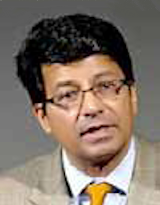 Tariq Samad
is Corporate Fellow at Honeywell Automation and Control Solutions and President of
the American Automatic Control Council, the U.S. IFAC NMO. In 2009 he served as President of IEEE
Control Systems Society. He is editor-in-chief of IE Press and he was editor-in-chief of IE Control
Systems Magazine from 1998 to 2003. He is co-editor-in-chief of the Encyclopedia of Systems and Control
(Springer, in press). He was the General Chair for the 2012 American Control Conference, the first AC
held outside the U.S. He is a recipient of the Control Systems Technology Award from the IEEE Control
Systems Society and he is an IE Fellow. He has been asked to set up a pilot Industrial Committee for
IFAC in his role as Technical Board Vice Chair for the 2014 – 2017 triennium.
Tariq Samad
is Corporate Fellow at Honeywell Automation and Control Solutions and President of
the American Automatic Control Council, the U.S. IFAC NMO. In 2009 he served as President of IEEE
Control Systems Society. He is editor-in-chief of IE Press and he was editor-in-chief of IE Control
Systems Magazine from 1998 to 2003. He is co-editor-in-chief of the Encyclopedia of Systems and Control
(Springer, in press). He was the General Chair for the 2012 American Control Conference, the first AC
held outside the U.S. He is a recipient of the Control Systems Technology Award from the IEEE Control
Systems Society and he is an IE Fellow. He has been asked to set up a pilot Industrial Committee for
IFAC in his role as Technical Board Vice Chair for the 2014 – 2017 triennium.
He has co-edited a recent publication, The Impact of Control Technology (second edition in preparation), that includes several “success stories” of advanced control; this publication is freely available at ieeecss. org/main/IoCT-report. The objective of this report is to promote the accomplishments of advanced control, both within and outside the controls field.
 Roger Goodall
is Professor of Control Systems Engineering in the School of Electronic, Electrical and
Systems Engineering at Loughborough University in the UK. He worked for 14 years in industry before
moving to Loughborough University in 1982 and becoming a full professor in 1994. His research has
always had strong industrial participation, and he has a speciality in advanced technologies for railway
vehicles and aircraft. He has also served on a variety of industry advisory boards including the UK railway’s
Technical Strategy Leadership Group and Rolls-Royce Electrical, Controls Systems & Electronics Advisory
Board. He is an elected Fellow of the UK’s Royal Academy of Engineering, and also a Fellow of the
professional engineering institutions IET and IMechE. For 2008-2014 he has served as IFAC Vice-President
(Chair of the Executive Board).
Roger Goodall
is Professor of Control Systems Engineering in the School of Electronic, Electrical and
Systems Engineering at Loughborough University in the UK. He worked for 14 years in industry before
moving to Loughborough University in 1982 and becoming a full professor in 1994. His research has
always had strong industrial participation, and he has a speciality in advanced technologies for railway
vehicles and aircraft. He has also served on a variety of industry advisory boards including the UK railway’s
Technical Strategy Leadership Group and Rolls-Royce Electrical, Controls Systems & Electronics Advisory
Board. He is an elected Fellow of the UK’s Royal Academy of Engineering, and also a Fellow of the
professional engineering institutions IET and IMechE. For 2008-2014 he has served as IFAC Vice-President
(Chair of the Executive Board).
Roger Goodall has chaired an IFAC Task Force considering the idea of a new IFAC Industrial Committee, and will give an introduction to the Task Force and provide a brief overview of its results. He had a substantial period in industry prior to moving to his current academic position, and he will also present some personal views relating to the characteristics for successful university-industry collaboration.
 Kazuya Asano
is Principal Researcher, Steel Research Laboratory, JFE Steel Corporation. He received his
B.S., M.S. and Dr.Eng. degrees from The University of Tokyo, Japan, in 1981, 1983 and 2001, respectively.
He joined Kawasaki Steel Corporation in 1983. He was a visiting associate at the California Institute
of Technology from 1993 to 1994, and an academic guest at the Swiss Federal Institute of Technology
from 1994 to 1995. He is currently a principal researcher at the Steel Research Laboratory of JFE Steel
Corporation. He has been involved in R&D of control systems for various steel processes. He was the Chair
of the Technical Committee on Mining, Mineral and Metal Processing of IFAC from 2008 to 2011, and is
currently a Vice-chair of the TC.
Kazuya Asano
is Principal Researcher, Steel Research Laboratory, JFE Steel Corporation. He received his
B.S., M.S. and Dr.Eng. degrees from The University of Tokyo, Japan, in 1981, 1983 and 2001, respectively.
He joined Kawasaki Steel Corporation in 1983. He was a visiting associate at the California Institute
of Technology from 1993 to 1994, and an academic guest at the Swiss Federal Institute of Technology
from 1994 to 1995. He is currently a principal researcher at the Steel Research Laboratory of JFE Steel
Corporation. He has been involved in R&D of control systems for various steel processes. He was the Chair
of the Technical Committee on Mining, Mineral and Metal Processing of IFAC from 2008 to 2011, and is
currently a Vice-chair of the TC.
Statement: “The steel industry is a typical process industry, where we sell neither control software/hardware nor controller embedded products to our customers. We are investigating how to cut production costs, how to improve productivity, production yield and product quality and how to reduce specific consumptions of raw materials and energy by applying control technologies to processes in our steel works. In that sense, it may seem that subjects of research as control applications are limited in the steel industry and major developments in this field have already been done. Actually, the number of papers on control applications in the steel industry submitted to conferences and journals has been decreasing and industry/academia collaboration in this field is getting less and less active. However, if we view control theory/technology in a broader sense, there are many things yet to be done. To reactivate industry/academia collaboration, it is necessary for the industry side to clarify those changing needs to the academia side. On the other hand, collaborations with people in different academic areas will be necessary to address the emerging needs, which will extend and activate the control community.”
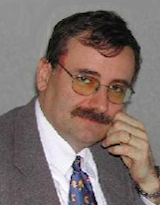 Serge Boverie
received his Electrical Engineering degree and DEA in Control Engineering from INSA in
1979 and a Ph.D. in Automatic Control in Toulouse, 1981. In 2011 he was awarded a Habilitation (HDR) in
computing science, control engineering, and signal processing. After 4 years in the Helicopter division of
Aerospatiale, in 1987 he joined Siemens VDO Automotive SAS, now Continental Automotive France S.A.S.
Since 2008 he is head of the R&D department on ADAS applications. He is involved in various French expert
committees and international partnership projects. His domains of interests are Perception Systems,
Human Machine Interaction, Advanced Driver Assistance Systems (ADAS) and Human Monitoring. He is
the author and co-author of 10 patents, and more than 100 conference/journal papers. He was editor for
Control Engineering Practice from 1993 to 2002. His IFAC service includes Vice Chairman then Chairman of
“Component and Instrument” Technical Committee (1993- 2005), Chairman of the Mechatronics, Robotics
and Components Coordinating Committee (2005-2008) and Vice-chair of the Technical Board (2008-2014).
Until France will take the presidency of the IFAC organization he will act as Industrial Vice Chair. In 1993 he
received the IFAC Congress Applications price; in the 2001 the Science award from the French Ministry of
research (PREDIT program); in 2005 the IFAC award for Industrial achievement; in 2007 the French award
for his implication in IFAC organization, and in 2005 and 2008 the IFAC Outstanding awards.
Serge Boverie
received his Electrical Engineering degree and DEA in Control Engineering from INSA in
1979 and a Ph.D. in Automatic Control in Toulouse, 1981. In 2011 he was awarded a Habilitation (HDR) in
computing science, control engineering, and signal processing. After 4 years in the Helicopter division of
Aerospatiale, in 1987 he joined Siemens VDO Automotive SAS, now Continental Automotive France S.A.S.
Since 2008 he is head of the R&D department on ADAS applications. He is involved in various French expert
committees and international partnership projects. His domains of interests are Perception Systems,
Human Machine Interaction, Advanced Driver Assistance Systems (ADAS) and Human Monitoring. He is
the author and co-author of 10 patents, and more than 100 conference/journal papers. He was editor for
Control Engineering Practice from 1993 to 2002. His IFAC service includes Vice Chairman then Chairman of
“Component and Instrument” Technical Committee (1993- 2005), Chairman of the Mechatronics, Robotics
and Components Coordinating Committee (2005-2008) and Vice-chair of the Technical Board (2008-2014).
Until France will take the presidency of the IFAC organization he will act as Industrial Vice Chair. In 1993 he
received the IFAC Congress Applications price; in the 2001 the Science award from the French Ministry of
research (PREDIT program); in 2005 the IFAC award for Industrial achievement; in 2007 the French award
for his implication in IFAC organization, and in 2005 and 2008 the IFAC Outstanding awards.
Statement:
"For many reasons, cooperation between academic research and industry is not always easy; in many
situations they have diverging interests, some of them are mentioned hereafter:
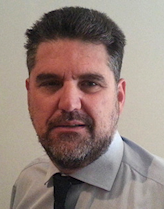 Kevin Brooks
is Chief Engineer at BluESP and President of the South African Council for Automation
and Control. He obtained his B.Sc. (Chemical Engineering) in 1980 and his Ph.D. in 1986, both from the
University of the Witwatersrand (Wits) in Johannesburg. He was a lecturer at Wits until 1990, where his
area of research was spontaneous combustion of coal. On leaving academia, he ran a consultancy in the
Cape. In 1991 he joined South African chemical and explosives producer AECI, where he worked with
MW Kellog on the scale-up of coal gasifiers for an ammonia plant upgrade project. He joined Honeywell
Hi-Spec Solutions in 1995, where he was involved in operator training simulators. He moved to advanced
process control (APC) and optimization, working on a number of processes, mainly with Sasol, the oil
from coal producer. He was appointed Engineering Leader for Advanced Process Control in 2003 and
led projects in both South Africa and Europe. In 2007 he was appointed Global APC discipline lead for
Honeywell Process Solutions. In 2007 Kevin joined BluESP, the Aspentech distributor for South Africa, as a
principal consultant. In this capacity he has performed projects in ethylene, fuel gas network optimization
and the platinum industry. He was elected president of the South African Council for Automation and
Control (SACAC) in January 2013.
Kevin Brooks
is Chief Engineer at BluESP and President of the South African Council for Automation
and Control. He obtained his B.Sc. (Chemical Engineering) in 1980 and his Ph.D. in 1986, both from the
University of the Witwatersrand (Wits) in Johannesburg. He was a lecturer at Wits until 1990, where his
area of research was spontaneous combustion of coal. On leaving academia, he ran a consultancy in the
Cape. In 1991 he joined South African chemical and explosives producer AECI, where he worked with
MW Kellog on the scale-up of coal gasifiers for an ammonia plant upgrade project. He joined Honeywell
Hi-Spec Solutions in 1995, where he was involved in operator training simulators. He moved to advanced
process control (APC) and optimization, working on a number of processes, mainly with Sasol, the oil
from coal producer. He was appointed Engineering Leader for Advanced Process Control in 2003 and
led projects in both South Africa and Europe. In 2007 he was appointed Global APC discipline lead for
Honeywell Process Solutions. In 2007 Kevin joined BluESP, the Aspentech distributor for South Africa, as a
principal consultant. In this capacity he has performed projects in ethylene, fuel gas network optimization
and the platinum industry. He was elected president of the South African Council for Automation and
Control (SACAC) in January 2013.
Statement: “When it comes to research there is a fundamental divide between industry and university expectations. A company typically presents the university with a problem of interest to them (i.e. the solution would make or save them money), and invests some funds to get the answer. The university (most often a person) accepts the money because the research will lead to a paper, the publication of which is key to getting ahead at university. Tension is caused by the fact that both the output and the timelines of the two organisations involved are different.
As in most relationships the solution lies in understanding each other’s point of view and then coming to a compromise. IFAC (and hopefully its NMOs) can help though its Industrial Committee Task Force, by first setting up guidelines on how to define expectations early in a collaboration.”
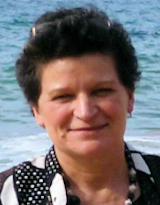 Françoise Lamnabhi-Lagarrigue
is Directeur de Recherche au Centre National de la Recherche
Scientifique since 1993 at the Laboratoire des Signaux et Systèmes. She obtained the Maîtrise ès sciences
mathématiques pures degree at the Université Paul Sabatier (Toulouse) in 1976 and she held a CNRS
position in 1980. She obtained her Docteur d’état ès Sciences Physiques from Université Paris Sud in
1985. She was Co-Editor-in-Chief of International Journal of Control; Scientific Manager of the Marie Curie
Control Training Site, CTS; Elected Member of the Board of Governors of IE Control Systems Society for
2003-2005; Scientific Manager of the HYCON Network of Excellence (ended 2009) and HYCON2 (2010-
2014); Since 2010, she is member of the Comité de Direction du GDR MACS. She is the founder of the
European Embedded Control Institute (EECI) and the chair of the EECI International Graduate School
on Control. She is serving as Member of the IFAC Technical Board, in particular as Chair of CC9 Social
Systems, during the triennia (2011 to 2014) and (2014 to 2017). Her recent research interests include
observer design and performance and robustness issues in nonlinear, hybrid and networked control
systems. She has supervised 22 Ph.D. theses. She is the author of 1 book and editor or co-editor of 10
books and 3 Special Issues; she is author and co-author of 57 journal papers, 30 chapters of books and
103 published conference papers. She won the 2008 Michel Monpetit prize of the French Academy of
Science and the 2010-2013 Prime d’Excellence Scientifique at CNRS. She is deputy director of the Ecole
Doctorale STIC and member of the steering committee of the Institute iCODE of the new Paris Saclay
University.
Françoise Lamnabhi-Lagarrigue
is Directeur de Recherche au Centre National de la Recherche
Scientifique since 1993 at the Laboratoire des Signaux et Systèmes. She obtained the Maîtrise ès sciences
mathématiques pures degree at the Université Paul Sabatier (Toulouse) in 1976 and she held a CNRS
position in 1980. She obtained her Docteur d’état ès Sciences Physiques from Université Paris Sud in
1985. She was Co-Editor-in-Chief of International Journal of Control; Scientific Manager of the Marie Curie
Control Training Site, CTS; Elected Member of the Board of Governors of IE Control Systems Society for
2003-2005; Scientific Manager of the HYCON Network of Excellence (ended 2009) and HYCON2 (2010-
2014); Since 2010, she is member of the Comité de Direction du GDR MACS. She is the founder of the
European Embedded Control Institute (EECI) and the chair of the EECI International Graduate School
on Control. She is serving as Member of the IFAC Technical Board, in particular as Chair of CC9 Social
Systems, during the triennia (2011 to 2014) and (2014 to 2017). Her recent research interests include
observer design and performance and robustness issues in nonlinear, hybrid and networked control
systems. She has supervised 22 Ph.D. theses. She is the author of 1 book and editor or co-editor of 10
books and 3 Special Issues; she is author and co-author of 57 journal papers, 30 chapters of books and
103 published conference papers. She won the 2008 Michel Monpetit prize of the French Academy of
Science and the 2010-2013 Prime d’Excellence Scientifique at CNRS. She is deputy director of the Ecole
Doctorale STIC and member of the steering committee of the Institute iCODE of the new Paris Saclay
University.
Statement: “In these recent years there has been an increasing effort from the control researcher’s community to understand the social-economic world in order applying their results. Often the companies are willing to contribute to these implementations which are sometimes concretizing till the product. However, clearly this full chain is not ‘profitable’ enough in the sense that the ratio Product by Research involvements is still too small. However we can say that the way from Academy to Social-economic is functioning but need to be strengthened. One of the main powerful tools is the co-advising of PhD students.
On the contrary, the other way round, the exchanges from industry to academia, are until now, very weak although it would bring incredible richness to fundamental problematic to be solved by the academia and, as a consequence, would suggest solutions to be implemented. One way to initiate or to improve this dissemination could be i) to setting up week trainings by experts from the social-economic world to graduate or undergraduate students and ii) to strengthening the participation of industrials to Workshops and Conferences.”
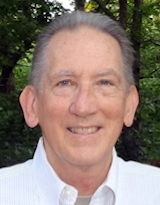 R. Russell Rhinehart
is a professor and BP Chair in the School of Chemical Engineering at Oklahoma
State University. He has experience in both industry (13 years) and academe (28 years). He was Head of
the School for 12 years. He is a 2001 fellow of the International Society of Automation (ISA), and served as
Editor-in-Chief of ISA Transactions (1998-2011). He is a CONTROL Automation Hall of Fame inductee, and
received the 2009 ISA Distinguished Service Award and the 2013 Fray International Sustainability Award.
He is Past President of the American Automatic Control Council.
R. Russell Rhinehart
is a professor and BP Chair in the School of Chemical Engineering at Oklahoma
State University. He has experience in both industry (13 years) and academe (28 years). He was Head of
the School for 12 years. He is a 2001 fellow of the International Society of Automation (ISA), and served as
Editor-in-Chief of ISA Transactions (1998-2011). He is a CONTROL Automation Hall of Fame inductee, and
received the 2009 ISA Distinguished Service Award and the 2013 Fray International Sustainability Award.
He is Past President of the American Automatic Control Council.
Statement: “Only about 5% of engineering graduates enter research related careers. About 85% enter industry. This indicates that preparation of graduates for practice careers is the key outcome of engineering education. Accordingly, instructors need to understand how engineering skills are applied and within the industry context. This is substantially different from the flavor of academic research, which is aimed toward success in pre-commercial funding, journal publication, and the analysis leadership that establishes academic careers. The application context of industry is also substantially different from the learning environment that instructors intentionally create to get students to understand concepts and methods. The context of engineering practice is confounded with both nonideal technical phenomena and human involvement. Contrasting academe, in industry neither perfection nor intellectual demonstration are the objective; sufficiency that ‘brings it to fruition’ is. Career academics might be great teachers of the fundamental concepts; but, when learning is disconnected from the application context, education misdirects the student mindset about engineering. Student acquired perspectives and values often undermine the engineer’s career success. The private sector needs to become involved in the processes that shape education. Do not send money!”
 Prof. Sebastian Engell received the Dipl.-Ing. degree in Electrical Engineering from the Ruhr-Universität
Bochum, Germany, in 1978, and the Dr.-Ing. degree from the Universität Duisburg, Germany in 1981. In
1987 the Universität Duisburg granted him the venia legendi in Automatic Control. From 1981 to 1984
and 1985-86 he was a senior researcher in the Automatic Control Group in the Mechanical Engineering
Department at Universität Duisburg, 1984/85 he spent a year at McGill University, Montréal, working with
George Zames and Peter Caines. 1986 he joined the Fraunhofer-Institut IITB, Karlsruhe, Germany, as a
leader of a R&D group where he acquired and managed projects on industrial control and production
scheduling. For one of these projects, he received a Joseph von Fraunhofer-Prize in 1991. Since 1990
he has been Professor of Process Control in the Department of Biochemical and Chemical Engineering,
Universität Dortmund, Germany. 1996-1999 he served as the Department Chairman, and from 2002-2005
as Vice-Rector for Research, Promotion of Young Scientists and International Relations of Universität
Dortmund. Currently he again is Department Chairman and Commissioner for International Relations
of TU Dortmund. He was member of the selection committee for the Leibniz-Prize of the Deutsche
Forschungsgemeinschaft, the most prestigious German research award, founding Co-Editor of the IEEE
Transactions on Control Systems Technology and Associate Editor of the European Journal of Control and
Associate Editor of Journal of Process Control. Sebastian Engell was appointed Fellow of the International
Federation of Automatic Control in 2006. He currently is Vice-President of EUCA, the European Control
Association, and national delegate in the Working Party for Computer-Aided Process Design (CAPE) of
the European Federation of Chemical Engineering. Sebastian Engell was awarded a European Research
Council Advanced Investigator Grant for the project MOBOCON (Model-based Optimizing Control – From
a Vision to Industrial Reality) and he leads the European Projects DYMASOS (Dynamic Management
of Physically Connected Systems of Systems) and MORE (Real-time Monitoring and Optimization of
Resource Efficiency in Integrated Processing Plants) and the Support Action CPSoS –Cyber-physical
Systems of Systems which will provide a roadmap for future research and funding in the area of large
cyber-physical systems with distributed management and control. His areas of research are robust control
methods, optimal operation of chemical and biochemical processes, coordination methods for large
systems, scheduling, tool integration, and optimization-based process design.
Prof. Sebastian Engell received the Dipl.-Ing. degree in Electrical Engineering from the Ruhr-Universität
Bochum, Germany, in 1978, and the Dr.-Ing. degree from the Universität Duisburg, Germany in 1981. In
1987 the Universität Duisburg granted him the venia legendi in Automatic Control. From 1981 to 1984
and 1985-86 he was a senior researcher in the Automatic Control Group in the Mechanical Engineering
Department at Universität Duisburg, 1984/85 he spent a year at McGill University, Montréal, working with
George Zames and Peter Caines. 1986 he joined the Fraunhofer-Institut IITB, Karlsruhe, Germany, as a
leader of a R&D group where he acquired and managed projects on industrial control and production
scheduling. For one of these projects, he received a Joseph von Fraunhofer-Prize in 1991. Since 1990
he has been Professor of Process Control in the Department of Biochemical and Chemical Engineering,
Universität Dortmund, Germany. 1996-1999 he served as the Department Chairman, and from 2002-2005
as Vice-Rector for Research, Promotion of Young Scientists and International Relations of Universität
Dortmund. Currently he again is Department Chairman and Commissioner for International Relations
of TU Dortmund. He was member of the selection committee for the Leibniz-Prize of the Deutsche
Forschungsgemeinschaft, the most prestigious German research award, founding Co-Editor of the IEEE
Transactions on Control Systems Technology and Associate Editor of the European Journal of Control and
Associate Editor of Journal of Process Control. Sebastian Engell was appointed Fellow of the International
Federation of Automatic Control in 2006. He currently is Vice-President of EUCA, the European Control
Association, and national delegate in the Working Party for Computer-Aided Process Design (CAPE) of
the European Federation of Chemical Engineering. Sebastian Engell was awarded a European Research
Council Advanced Investigator Grant for the project MOBOCON (Model-based Optimizing Control – From
a Vision to Industrial Reality) and he leads the European Projects DYMASOS (Dynamic Management
of Physically Connected Systems of Systems) and MORE (Real-time Monitoring and Optimization of
Resource Efficiency in Integrated Processing Plants) and the Support Action CPSoS –Cyber-physical
Systems of Systems which will provide a roadmap for future research and funding in the area of large
cyber-physical systems with distributed management and control. His areas of research are robust control
methods, optimal operation of chemical and biochemical processes, coordination methods for large
systems, scheduling, tool integration, and optimization-based process design.
 Prof. Shinji Hara received the B.S., M.S., and Ph.D. degrees in engineering from Tokyo Institute of
Technology, Tokyo, Japan, in 1974, 1976 and 1981, respectively. In 1984 he joined Tokyo Institute of
Technology as an Associate Professor and had served as a Full Professor for ten years. Since 2002 he has
been a Full Professor of Department of Information Physics and Computing, The University of Tokyo. He
received George S. Axelby Outstanding Paper Award from IE Control System Society in 2006. He also
received Best Paper Awards from SICE several times. His current research interests are in robust control,
decentralized control for networked dynamical systems, glocal control, energy management systems,
systems biology, and computational aspects of control system design. Dr. Hara was the General Chair
of the CCA04, the Program Co-Chair of the 17th IFAC World Congress in Seoul, the President of SICE in
2009, the Vice President of IE CS for membership activities in 2009-2010, IFAC Council member since
2011, and associate editors of several international journals including IE Trans. on Automatic Control
and Automatica. He is Fellow of IE, IFAC, and SICE.
Prof. Shinji Hara received the B.S., M.S., and Ph.D. degrees in engineering from Tokyo Institute of
Technology, Tokyo, Japan, in 1974, 1976 and 1981, respectively. In 1984 he joined Tokyo Institute of
Technology as an Associate Professor and had served as a Full Professor for ten years. Since 2002 he has
been a Full Professor of Department of Information Physics and Computing, The University of Tokyo. He
received George S. Axelby Outstanding Paper Award from IE Control System Society in 2006. He also
received Best Paper Awards from SICE several times. His current research interests are in robust control,
decentralized control for networked dynamical systems, glocal control, energy management systems,
systems biology, and computational aspects of control system design. Dr. Hara was the General Chair
of the CCA04, the Program Co-Chair of the 17th IFAC World Congress in Seoul, the President of SICE in
2009, the Vice President of IE CS for membership activities in 2009-2010, IFAC Council member since
2011, and associate editors of several international journals including IE Trans. on Automatic Control
and Automatica. He is Fellow of IE, IFAC, and SICE.
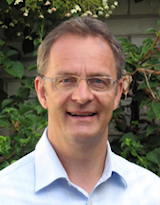 Dr. Alf Isaksson
graduated from Linköping University, Linköping, Sweden, with an MSc in Computer
Engineering and PhD in Automatic Control in 1983 and 1988, respectively. He stayed at Linköping University
as Lecturer until 1991, when he spent one year at The University of Newcastle, Australia. Coming back
to Sweden in 1992 he moved to the Royal Institute of Technology (KTH) in Stockholm, where he was
eventually in 1999 promoted to full professor. In 2001 he left academia and started with ABB Corporate
Research, where he worked as a technical specialist reaching the level of Corporate Research Fellow in
2009. Meanwhile he also returned part-time to academia as Adjunct Professor at Linköping University in
2006, where he was leading a Process Industry Center (PIC-LI) between 2009 and 2012. From 2012 he is
now Program Manager of Control & Optimization, i.e. globally responsible in ABB Corporate Research for
all research in this area. In 2013 he was elected as member of the Royal Swedish Academy of Engineering
Sciences. Isaksson’s own research interests were initially focused on system identification, but he later
moved more generally into Process Control. More recently, leading PIC-LI and also as Program Manager,
the interest has widened even further to cover all aspects of automation in process and manufacturing
industry.
Dr. Alf Isaksson
graduated from Linköping University, Linköping, Sweden, with an MSc in Computer
Engineering and PhD in Automatic Control in 1983 and 1988, respectively. He stayed at Linköping University
as Lecturer until 1991, when he spent one year at The University of Newcastle, Australia. Coming back
to Sweden in 1992 he moved to the Royal Institute of Technology (KTH) in Stockholm, where he was
eventually in 1999 promoted to full professor. In 2001 he left academia and started with ABB Corporate
Research, where he worked as a technical specialist reaching the level of Corporate Research Fellow in
2009. Meanwhile he also returned part-time to academia as Adjunct Professor at Linköping University in
2006, where he was leading a Process Industry Center (PIC-LI) between 2009 and 2012. From 2012 he is
now Program Manager of Control & Optimization, i.e. globally responsible in ABB Corporate Research for
all research in this area. In 2013 he was elected as member of the Royal Swedish Academy of Engineering
Sciences. Isaksson’s own research interests were initially focused on system identification, but he later
moved more generally into Process Control. More recently, leading PIC-LI and also as Program Manager,
the interest has widened even further to cover all aspects of automation in process and manufacturing
industry.
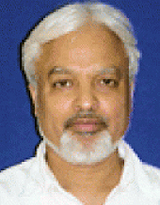 Prof. H. S. Jamadagni
has a doctoral degree from Indian Institute of Science and he is a professor at
CEDT in IISC. He was chairman of CEDT during 1996 – 2009. He is one of the founder members of CEDT
in co-operation with Swiss Government, and is the main architect of the successful collaboration project in
education and research between Europe and India. He is regular visitor to International universities in U.S
and Europe. He has published many papers and research publications. He is the force and the key driver
for the Intel Multi-Core University Program in India. He is also the coordinator of the Texas Instrument’s
“Lead University” programme at IISc. He is one of the key mentors for the Intel Higher Education
programme in India and was the program coordinator for various Intel Workshops and research programs.
He is a teacher, product developer, researcher, industrial consultant and one of the main coordinators of
the national education publications in India, and a mentor to many research students. He co-founded a
communications startup company in 2003. He also served as Member (Part time) in Telecom Regulatory
Authority of India (TRAI) during 2010 – 13.
Prof. H. S. Jamadagni
has a doctoral degree from Indian Institute of Science and he is a professor at
CEDT in IISC. He was chairman of CEDT during 1996 – 2009. He is one of the founder members of CEDT
in co-operation with Swiss Government, and is the main architect of the successful collaboration project in
education and research between Europe and India. He is regular visitor to International universities in U.S
and Europe. He has published many papers and research publications. He is the force and the key driver
for the Intel Multi-Core University Program in India. He is also the coordinator of the Texas Instrument’s
“Lead University” programme at IISc. He is one of the key mentors for the Intel Higher Education
programme in India and was the program coordinator for various Intel Workshops and research programs.
He is a teacher, product developer, researcher, industrial consultant and one of the main coordinators of
the national education publications in India, and a mentor to many research students. He co-founded a
communications startup company in 2003. He also served as Member (Part time) in Telecom Regulatory
Authority of India (TRAI) during 2010 – 13.
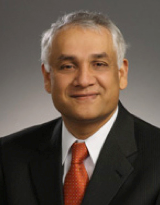 Dr. Pramod P. Khargonekar
was appointed by the National Science Foundation (NSF) to serve as
Assistant Director for the Directorate of Engineering (ENG) in March 2013. In this position, Khargonekar
leads the ENG Directorate with an annual budget of more than $800 million. The ENG Directorate invests
in frontier engineering research and education, cultivates an innovation ecosystem, and develops the nextgeneration
of engineers. He is a member of the senior leadership team at NSF and thereby involved in setting
priorities and policies at NSF. He received B. Tech. Degree in electrical engineering from the Indian Institute
of Technology, Bombay, India, in 1977, and M.S. degree in mathematics and Ph.D. degree in electrical
engineering from the University of Florida in 1980 and 1981, respectively. He has held faculty positions
at the University of Florida, University of Minnesota, and The University of Michigan. He was Chairman
of the Department of Electrical Engineering and Computer Science from 1997 to 2001 and also held the
position of Claude E. Shannon Professor of Engineering Science at The University of Michigan. From
2001 to 2009, he was Dean of the College of Engineering and is currently Eckis Professor of Electrical and
Computer Engineering at the University of Florida. He also served briefly as Deputy Director of Technology
at ARPA-E, U. S. Department of Energy in 2012-13. Khargonekar’s research and teaching interests are
centered on theory and applications of systems and control. His early work was on mathematical control
theory, specifically focusing on robust control analysis and design. During the 1990’s, he was involved in
a major multidisciplinary project on applications of control and estimation techniques to semiconductor
manufacturing. His current research and teaching interests include systems and control theory, machine
learning, and applications to smart electric grid and neural engineering. He has authored more than 130
refereed journal publications and 150 conference publications. He has supervised 32 doctoral students.
He has been recognized as a Web of Science Highly Cited Researcher. He is a recipient of the NSF
Presidential Young Investigator Award, the American Automatic Control Council’s Donald Eckman Award,
the Japan Society for Promotion of Science fellowships, the IE W. R. G. Baker Prize Award, the IE
CS George Axelby Best Paper Award, the Hugo Schuck AC Best Paper Award, and the Distinguished
Alumnus and Distinguished Service Awards from the Indian Institute of Technology, Bombay. He is a Fellow
of IEEE. At the University of Michigan, he received the Arthur F. Thurnau Professorship. In the past, he has
served as Associate Editor for IE Transactions on Automatic Control, SIAM Journal of Control, Systems
and Control Letters, and International J. of Robust and Nonlinear Control. He has been a member of the
IE Control Systems Theory and Robust Control technical committees. He has also served as Chair and
Member of the American Automatic Control Council’s Donald Eckman Award Committee. He has served
as Program Co-Chair of the American Control Conference.
Dr. Pramod P. Khargonekar
was appointed by the National Science Foundation (NSF) to serve as
Assistant Director for the Directorate of Engineering (ENG) in March 2013. In this position, Khargonekar
leads the ENG Directorate with an annual budget of more than $800 million. The ENG Directorate invests
in frontier engineering research and education, cultivates an innovation ecosystem, and develops the nextgeneration
of engineers. He is a member of the senior leadership team at NSF and thereby involved in setting
priorities and policies at NSF. He received B. Tech. Degree in electrical engineering from the Indian Institute
of Technology, Bombay, India, in 1977, and M.S. degree in mathematics and Ph.D. degree in electrical
engineering from the University of Florida in 1980 and 1981, respectively. He has held faculty positions
at the University of Florida, University of Minnesota, and The University of Michigan. He was Chairman
of the Department of Electrical Engineering and Computer Science from 1997 to 2001 and also held the
position of Claude E. Shannon Professor of Engineering Science at The University of Michigan. From
2001 to 2009, he was Dean of the College of Engineering and is currently Eckis Professor of Electrical and
Computer Engineering at the University of Florida. He also served briefly as Deputy Director of Technology
at ARPA-E, U. S. Department of Energy in 2012-13. Khargonekar’s research and teaching interests are
centered on theory and applications of systems and control. His early work was on mathematical control
theory, specifically focusing on robust control analysis and design. During the 1990’s, he was involved in
a major multidisciplinary project on applications of control and estimation techniques to semiconductor
manufacturing. His current research and teaching interests include systems and control theory, machine
learning, and applications to smart electric grid and neural engineering. He has authored more than 130
refereed journal publications and 150 conference publications. He has supervised 32 doctoral students.
He has been recognized as a Web of Science Highly Cited Researcher. He is a recipient of the NSF
Presidential Young Investigator Award, the American Automatic Control Council’s Donald Eckman Award,
the Japan Society for Promotion of Science fellowships, the IE W. R. G. Baker Prize Award, the IE
CS George Axelby Best Paper Award, the Hugo Schuck AC Best Paper Award, and the Distinguished
Alumnus and Distinguished Service Awards from the Indian Institute of Technology, Bombay. He is a Fellow
of IEEE. At the University of Michigan, he received the Arthur F. Thurnau Professorship. In the past, he has
served as Associate Editor for IE Transactions on Automatic Control, SIAM Journal of Control, Systems
and Control Letters, and International J. of Robust and Nonlinear Control. He has been a member of the
IE Control Systems Theory and Robust Control technical committees. He has also served as Chair and
Member of the American Automatic Control Council’s Donald Eckman Award Committee. He has served
as Program Co-Chair of the American Control Conference.
 Prof. Yuanzhang Sun
was born in Hunan province of China in 1954. He received the B.S. degree from Wuhan
University of Hydro and Electrical Engineering, Wuhan, China, in 1978, the M.S. degree from the Electric
Power Research Institute (EPRI), Beijing, China, in 1982, and the Ph.D. degree in electrical engineering
from Tsinghua University, Beijing, in 1988. Currently, he is a Professor and the Dean of the Smart Grid
Research Institute of Wuhan University, and a Chair Professor of the Department of Electrical Engineering
and Vice Director of the State Key Lab of Power System Control and Simulation at Tsinghua University.
His main research interests are in the areas of power system dynamics and control, wind power, voltage
stability and control, and reliability. Dr. Sun has authored or co-authored over 100 research publications
and also three books published by Kluwer Academic Publishers and Science Academic Publishers of
China. Dr. Sun is a senior member of IE and CSE (Chinese Society of Electrical Engineering). He is
currently serving as an associate editor of IFAC Journal on Control Engineering Practice, an associate
director of Department of Electricity & Applied Mathematics.
Prof. Yuanzhang Sun
was born in Hunan province of China in 1954. He received the B.S. degree from Wuhan
University of Hydro and Electrical Engineering, Wuhan, China, in 1978, the M.S. degree from the Electric
Power Research Institute (EPRI), Beijing, China, in 1982, and the Ph.D. degree in electrical engineering
from Tsinghua University, Beijing, in 1988. Currently, he is a Professor and the Dean of the Smart Grid
Research Institute of Wuhan University, and a Chair Professor of the Department of Electrical Engineering
and Vice Director of the State Key Lab of Power System Control and Simulation at Tsinghua University.
His main research interests are in the areas of power system dynamics and control, wind power, voltage
stability and control, and reliability. Dr. Sun has authored or co-authored over 100 research publications
and also three books published by Kluwer Academic Publishers and Science Academic Publishers of
China. Dr. Sun is a senior member of IE and CSE (Chinese Society of Electrical Engineering). He is
currently serving as an associate editor of IFAC Journal on Control Engineering Practice, an associate
director of Department of Electricity & Applied Mathematics.
 Prof. Marco H. Terra
is with the Electrical Engineering Department of the University of São Paulo (USP),
São Carlos. He received his BS from São Paulo State University (USP) in 1986, and MSEE in 1990 and
Ph.D. in 1995 both from USP. He visited for some months the University of California at Los Angeles where
he started his research on robust filtering. He has been ad hoc referee of several scientific foundations,
such as the Research Grants Council of Hong Kong, and reviewer of dozens journal papers, such as
the American Mathematical Society. He has coordinated some projects related with Driver Assistance
Systems, sponsored by Scania Latin American; Multisensor-fusion and Regulation of Robotic Rehabilitation
Systems, sponsored by CNPq; Inspection of Power Transmission Lines Through Unnamed Helicopters,
sponsored by Brazilian Electricity Regulator (ANEL) and AMPLA - an electric energy distributor which
provides electricity to 66 cities in the state of Rio de Janeiro. Currently, he is president of the Brazilian
Society of Automatics – SBA. Prof. Terra is coordinating the creation of a Robotics Center at USP-São
Carlos. This is a joint initiative of ten researchers from electrical and mechanical engineering, and from
computer science. This Center has the mission of providing alternatives to solve universal problems
through robotics, such as rehabilitation of upper and lower limbs in people with disabilities, and problems
with a strong national appeal, such as those related to precision agriculture and the pre-salt areas in which
we are strong economically. Prof. Terra is a co-author of the book “Robust Control of Robots: Fault Tolerant
Approaches” by Springer Verlag in 2011. He has dedicated effort on the development of recursive robust
Controllers for uncertain linear systems subject to Markovian jumps.
Prof. Marco H. Terra
is with the Electrical Engineering Department of the University of São Paulo (USP),
São Carlos. He received his BS from São Paulo State University (USP) in 1986, and MSEE in 1990 and
Ph.D. in 1995 both from USP. He visited for some months the University of California at Los Angeles where
he started his research on robust filtering. He has been ad hoc referee of several scientific foundations,
such as the Research Grants Council of Hong Kong, and reviewer of dozens journal papers, such as
the American Mathematical Society. He has coordinated some projects related with Driver Assistance
Systems, sponsored by Scania Latin American; Multisensor-fusion and Regulation of Robotic Rehabilitation
Systems, sponsored by CNPq; Inspection of Power Transmission Lines Through Unnamed Helicopters,
sponsored by Brazilian Electricity Regulator (ANEL) and AMPLA - an electric energy distributor which
provides electricity to 66 cities in the state of Rio de Janeiro. Currently, he is president of the Brazilian
Society of Automatics – SBA. Prof. Terra is coordinating the creation of a Robotics Center at USP-São
Carlos. This is a joint initiative of ten researchers from electrical and mechanical engineering, and from
computer science. This Center has the mission of providing alternatives to solve universal problems
through robotics, such as rehabilitation of upper and lower limbs in people with disabilities, and problems
with a strong national appeal, such as those related to precision agriculture and the pre-salt areas in which
we are strong economically. Prof. Terra is a co-author of the book “Robust Control of Robots: Fault Tolerant
Approaches” by Springer Verlag in 2011. He has dedicated effort on the development of recursive robust
Controllers for uncertain linear systems subject to Markovian jumps.